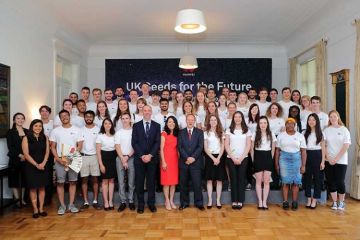From optimising the wheelchairs of tennis players to measuring ice consumption at the games, scientists are conducting and implementing wide-ranging research to support the success and development of the Olympic and Paralympic Games this summer.
However, whether this research should take place at the games themselves is an issue of contention. While some resist the idea, arguing that the same impact can be had away from the field, others are calling for that to change.
One of the latter is Yannis Pitsiladis, a sports scientist at Hong Kong Baptist University. Professor Pitsiladis is a member of the International Olympic Committee’s medical and scientific committee, which helps oversee athlete safety at the games.
While working as part of this group at the Paris Olympics this summer, Professor Pitsiladis is taking with him a team of scientists to research initiatives including novel ways of measuring ambient temperatures – with implications for those competing in extreme heat – and placing sensors on athletes to monitor their vital signs.
Doing this sort of research at the games is relatively unusual. “The International Olympic Committee and the International Paralympic Committee don’t really endorse research at the games,” he said. “And the reason is they don’t want to harm the athletes who are preparing and then have a scientist running around them trying to collect measurements. You can understand that causes problems.”
However, he said the leaders of the games trusted him to behave responsibly. “We actually are there to create innovations that then can become part of the games,” he said. “And if you don’t do it at the games, you never know if it’s going to work. So you need to test out your various things…where it matters in the Olympic Games and potentially save a life or save an athlete from getting hurt.”
This year, Professor Pitsiladis is working with about 100 Olympic athletes, providing them with sensors, such as a pill that enters the large intestine and measures core temperature, and heart rate monitor straps, which will allow his team to track their health remotely.
Currently, he said, there is no way to protect the health of athletes until they collapse. “That’s too late, because then you have to deal with an emergency,” he said.
There has been resistance to this from chief medical officers and scientific committees, who think the games should remain research-free and are concerned about cheating, but Professor Pitsiladis hopes these methods will one day become part and parcel of the games.
Vicky Tolfrey, director of the Peter Harrison Centre for Disability Sport at Loughborough University, has been working with wheelchair rugby and tennis players, who are susceptible to overheating, on cooling strategies, among other research programmes. This work is done from the university’s laboratories and test events ahead of the games, with embedded scientists travelling to Paris to help with physical preparation strategies and planning ahead for the 2028 Paralympics.
The team of scientists working with the British national squads have a track record of working “behind the scenes” and educating the players to be “best prepared”, she said.
Although scientific research has been conducted at the Paralympics, the research that Professor Tolfrey has been involved in is typically delivered in the run-up to the games, leaving athletes free to focus on what matters to them on the day – the sport ahead.
“We are working in a sports facility, where athletes are in sight and implementing our research has changed the practice of what the players do,” she said, giving an example of players now drinking ice slurries at interval breaks.
“We’ve done all this from the lab and simulated competitions prior to the games – so when it comes to that performance in Paris, they are well rehearsed,” she added. “I get a lot of satisfaction coming back from a holding camp, knowing that, actually, the athletes are now best served.”
That said, for Professor Pitsiladis’ part, he believes that there is a place for research at the games, if done in a responsible way. “I understand that science, if not done carefully, can impede and harm, so it’s got to be done within certain rules,” he said. For him, this includes not directly approaching athletes at the games – they are all recruited prior to the event – and giving them the option to change their mind once they arrive in Paris.
Despite the debate between some scientists and scientific approval committees, academics agree that science plays a vital role in supporting athlete performance and safety, as well as improving health outcomes for the wider population.
“All of these things are what universities should be doing,” said Professor Pitsiladis. “As we learnt from the Covid pandemic, I think science unites even more than sport. And then when you add the two together – sports science – wow, you can do miracles.”
POSTSCRIPT:
Print headline: Research at Olympic Games is a hot topic
Register to continue
Why register?
- Registration is free and only takes a moment
- Once registered, you can read 3 articles a month
- Sign up for our newsletter
Subscribe
Or subscribe for unlimited access to:
- Unlimited access to news, views, insights & reviews
- Digital editions
- Digital access to THE’s university and college rankings analysis
Already registered or a current subscriber? Login










